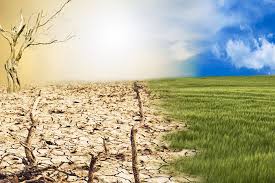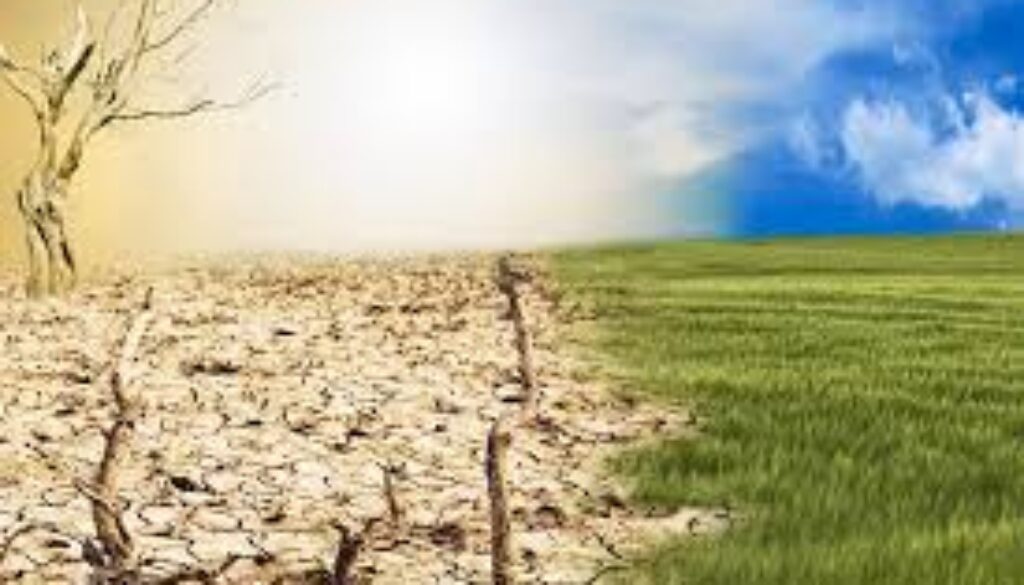Climate Change and Environmental Advocacy
Introduction
Climate change is one of the most pressing challenges humanity faces in the 21st century. From rising global temperatures to increasingly erratic weather patterns, the changes in climate are affecting ecosystems, economies, and human health on a global scale. Environmental advocates and organizations have long been at the forefront of raising awareness about the issue, pushing for policies and actions that can mitigate the climate change effects and promote sustainability. This article explores the current state of climate change, its impacts on the world, and how advocacy efforts are shaping the fight against this global crisis.
In examining how will climate change affect the world, we will also review the IPCC reports that offer valuable insights into the scientific understanding of the issue, along with practical measures to slow its progress. Additionally, we will address the fundamental question: The answers are critical for understanding the complex relationship between global warming and their effects on global systems.

Overview
Climate change refers to long-term alterations in temperature, precipitation, and other atmospheric conditions on Earth. These changes are largely driven by human activities, particularly the burning of fossil fuels, deforestation, and industrial activities that release greenhouse gases (GHGs) into the atmosphere. The climate change effects are already evident in many parts of the world, from the melting of polar ice caps to increasingly frequent extreme weather events such as hurricanes, floods, and droughts.
While climate change & global warming are often used interchangeably, it’s important to recognize that global warming is just one aspect of climate change. Global warming refers to the increase in Earth’s average surface temperature due to rising GHG concentrations, while encompasses a broader range of changes, including shifts in weather patterns, ocean currents, and ecosystems.
The IPCC assessment report on climate change plays a critical role in understanding these dynamics, offering a comprehensive, scientifically grounded analysis of the state of the environment and the future implications of climate change on the world. These reports offer predictions and solutions, making them vital tools for policymakers and advocates alike.
Detailed Section
How is Climate Changing?
To understand how is climate changing, it is essential to recognize the key indicators of effects. These include:
- Rising Global Temperatures: One of the most noticeable signs is the warming of the planet. According to the IPCC reports, the Earth’s average surface temperature has risen by approximately 1.2°C since the late 19th century. While this may seem like a small change, it has already had a profound impact on ecosystems and human activities.
- Melting Ice and Rising Sea Levels: The polar ice caps, particularly in the Arctic, are melting at an alarming rate. This results in rising sea levels that threaten coastal cities, islands, and ecosystems. The melting ice also disrupts the habitat of species like polar bears and seals, which rely on sea ice for breeding and hunting.
- Extreme Weather Events: Climate change on the world is becoming more evident in the form of extreme weather events. Hurricanes, droughts, heatwaves, and floods are becoming more frequent and severe. For example, heatwaves in Europe and wildfires in the U.S. are directly linked to changes in climate patterns.
- Shifts in Ecosystems and Biodiversity: As, so do the ecosystems that sustain biodiversity. Many species are struggling to adapt to shifting temperatures and habitats, leading to the loss of biodiversity. Coral reefs, which are particularly sensitive to temperature changes, are bleaching and dying at an unprecedented rate.
- Disruption of Agricultural Systems: It effects on agriculture include altered growing seasons, droughts, and changes in precipitation patterns. This affects food security, particularly in regions that are heavily dependent on agriculture for survival.
IPCC Climate Change Reports
The IPCC reports are among the most authoritative scientific assessments on the topic of climate change. These reports are produced by the Intergovernmental Panel on Climate Change (IPCC), a body established by the United Nations to provide policymakers with clear and actionable scientific information. The IPCC assessment report on climate change is released periodically, with the most recent update outlining the stark reality of effects and calling for urgent action to limit global warming to 1.5°C above pre-industrial levels.
The IPCC climate change reports highlight that if emissions continue at the current pace, the planet could warm by as much as 3-4°C by the end of the century. This would have devastating consequences for ecosystems, human health, and economies worldwide.
Is Climate Change Global Warming?
A common question is Is climate change global warming? While global warming refers to the rise in Earth’s average surface temperature, it is a broader term that includes global warming as well as other changes in weather patterns, sea levels, and ecosystems. Global warming is considered one of the key drivers , but the term encompasses a wider range of environmental shifts. Therefore, while global warming is a component , they are not the same thing.
How Does Climate Change Affect the World?
Understanding how does climate change affect the world involves examining the direct and indirect consequences that climate change effects have on various aspects of life:
- Human Health: The increasing frequency of heatwaves, air pollution, and the spread of diseases like malaria and dengue fever are direct consequences . Changes in temperature and weather patterns can also affect the availability of clean water, leading to droughts and water scarcity in many regions.
- Economic Impact: The economic consequences are profound. Extreme weather events, such as hurricanes and floods, cause billions of dollars in damages to infrastructure, homes, and businesses. In addition, disruptions to agriculture and fisheries threaten food security, and rising sea levels jeopardize coastal economies.
- Social Inequality:It effects often disproportionately impact the most vulnerable communities. Low-income regions, indigenous populations, and developing nations are often the least responsible for bear the brunt of its impacts. This exacerbates existing social inequalities and challenges efforts for global equity.
- Migration and Conflict: As displaces people due to rising sea levels, desertification, and extreme weather, there are increased risks of climate refugees and migration crises. This can also lead to resource conflicts, as countries and communities compete for increasingly scarce resources such as water, arable land, and food.
Benefits of Climate Advocacy
Environmental advocacy plays a crucial role in addressing and mitigating its effects. Here are a few key benefits of strong climate advocacy:
- Policy Change: Advocacy efforts have the power to influence government policies and international agreements. The Paris Agreement, for example, was a result of years of advocacy, aiming to limit global warming and reduce greenhouse gas emissions globally.
- Public Awareness: Advocacy campaigns raise awareness about the importance and encourage individuals and businesses to reduce their carbon footprint and adopt sustainable practices.
- Technological Innovation: Climate advocacy promotes the development of cleaner, more efficient technologies. From renewable energy sources to electric vehicles and carbon capture methods, these innovations help reduce the impact of human activities on the environment.
- Social Justice: Advocacy efforts also highlight the disproportionate impact of effects on marginalized communities, pushing for policies that prioritize fairness and inclusion in climate solutions.
FAQs Section
Q1: How is climate changing?
A1: It is characterized by rising global temperatures, melting polar ice, extreme weather events, and disruptions in ecosystems and biodiversity.
Q2: What is the relationship between global warming ?
A2: Global warming refers specifically to the rise in Earth’s average surface temperature, while it includes global warming as well as broader shifts in weather patterns, ecosystems, and sea levels.
Q3: How does it affect the world?
A3: Climate change affects the world through health impacts, economic damage, social inequality, food security issues, and environmental degradation. It also leads to the displacement of communities due to extreme weather events and rising sea levels.
Q4: Is there climate change?
A4: Yes, it is a scientifically proven phenomenon, driven largely by human activities that release greenhouse gases into the atmosphere.
Final Thoughts
It is an urgent, multifaceted crisis that requires immediate and sustained action from governments, businesses, and individuals. The IPCC climate change reports provide vital insights into the state of the planet and highlight the need for collective efforts to mitigate . By addressing head-on and advocating for global solutions, we can work towards a sustainable future where environmental preservation is prioritized, and the impacts the world are minimized.



